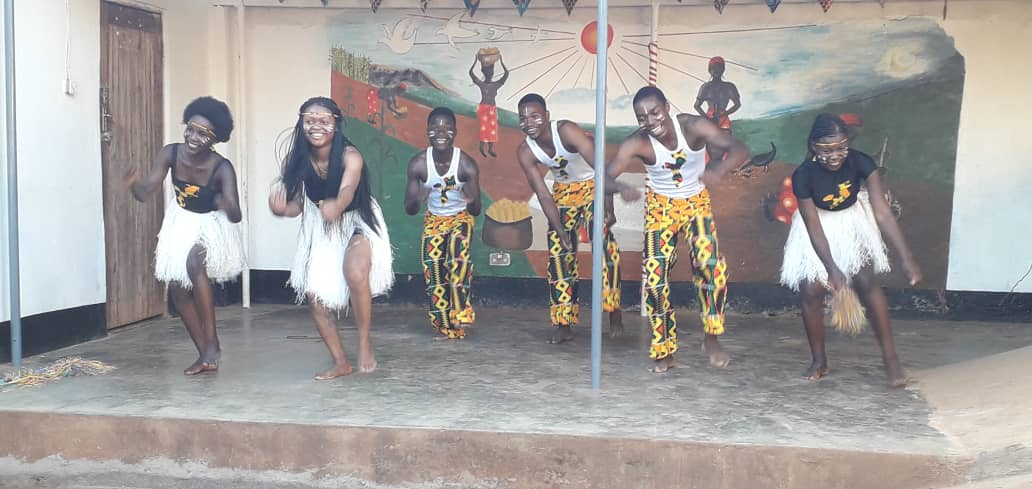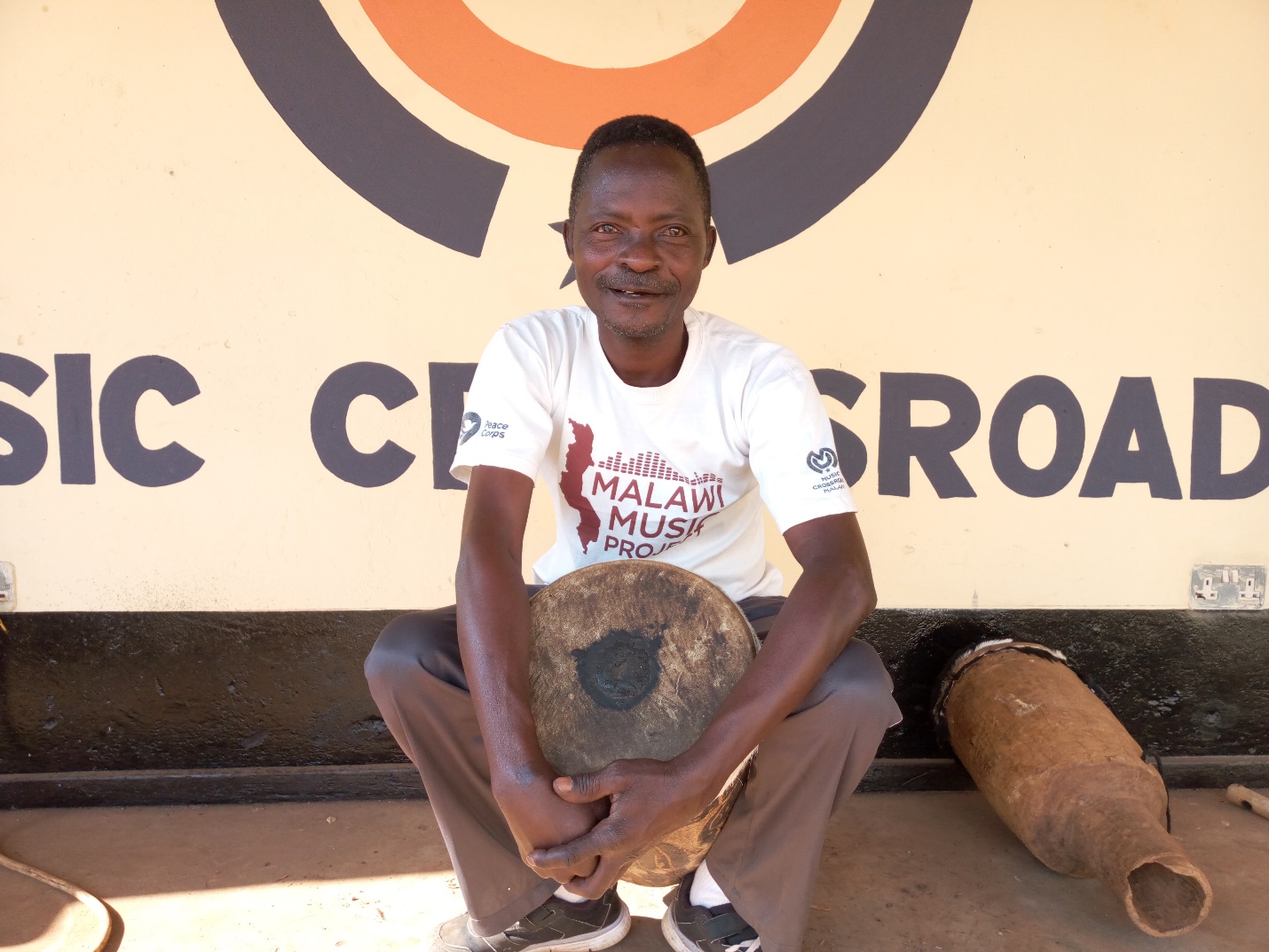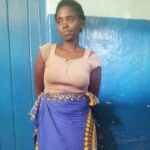Music Crossroads “Hear Us Children” Marrabenta Orchestra
Published on June 3, 2020 at 12:58 PM by Robert Ngwira
By Newton Kalua
Music Crossroads Malawi (MCM) has seriously taken dance to a professional level. Concretizing its promise to establish the school of dance in Lilongwe, MCM has constructed a new dance studio and has added a new aspect to its Hear Us Children Musical with the introduction of a Marrabenta Orchestra.
Launching the Marrabenta Orchestra with a tantalizing performance at its base in Area 23 on 29th May, 2020 the Director of Music Crossroads Malawi, Gayighayi Mathews Mfune could not hide his excitement. “We have come a long way and this is dream coming true. We want to change the perception about dance as a profession. We are determined to turning the Hear Us Children into a fully-fledged school of dance. Our friends from Spain and Mozambique are supporting us in the technical aspects of establishing the school of dance before the end of the year.
Eulália da Glória Sambo, a Mozambican participant in the Musicians and Organizers Volunteer Exchange (MOVE) project based at Music Crossroads initiated the idea of introducing Marrabenta into the group so as to widen up their horizon in the dance spectra as well as challenging the youths on new dance styles. She herself is a professional dancer and choreographer.
The MOVE project offers opportunities for young artists from Malawi, Mozambique, Brazil and Norway to go on exchange program between their countries to share competencies in their creative domains.
Marrabenta is a traditional popular style of singing and dancing which originated from Maputo City at a historic place called Mafalala. It was established around 1930 during the colonial regime amongst native guitarists, which were providing entertainment to the Portuguese colony. Due to the amazing way the natives were playing guitars, they named the art Marrabenta, framed from Xixangana and Portuguese languages (Ma + Rebenta).
With the introduction of Marrabenta Orchestra, John Duma, Music Crossroads Malawi Choreographer for the Hear Us Children feels the group has diversified their repertoire and learned new dance styles with which they will make their performances more exciting and meaningful.
“We are lucky to have learnt their dance. Mozambique and Malawi are neighbours and we have so much in common through our cultural values and practices that include dance. It should thus be natural that Marrabenta must find a home in Malawi. We feel Marrabenta will help us have a foreign spice unto the local dances we currently work on, and by knowing the dance our children have become more creative. Eulália teaches in a certain way which is way much different to the way I do. So, that brings a much needed flavour of diversification into our musical.”
“I am satisfied with the way she has trained them, she was dedicated and I feel she stands out as the best Marrabenta dance teacher we have ever hosted from Mozambique in the MOVE project. She was very committed I tell you. The team will now be able to showcase the dance at different occasions and be more popular. I will make sure that they continue practicing so that they should not forget some moves of the dance. It will spice up things and make us unique,” he said.
The training process of the dance started with Marrabenta theory, history, evolution of the the dance and its costume. The practical part involved the dance movements and choreographing. Due to shortage of time, the group decided to use Marrabenta music already created by some Mozambican musicians such as Neyma by Dzimene and Wazimbo by Sapateiro.
She admitted it has not been an easy job although it turned out to be a very exciting experience working with the Hear Us Children. “They never had a similar experience before as I did, but they are good dancers, they were dedicated and they did well. I am proud of them. I will really miss them; they made me strong. We had good and bad times together.”
“It was a big challenge to understand each one of them, but that is what makes a group to get stronger. Now, even far from them, we will still be connected and be even stronger because I know that we will never forget each other. I cannot write my history without mentioning their names. Now I am half Malawian because I will leave a small piece of my heart with them,” the Mozambican choreographer explained.
She further indicated that during her time in Malawi she has also learnt a lot in her decorated visit.
“I now know how to speak Chichewa, I know how to speak English more than before, I know about typical preparation of foods; nsima [Malawi’s staple meal made from maize flour], nyemba [beans], masamba osiyanasiyana [different kinds of vegetables] ndi nyama [and meat], and I have also learnt 2 folklore songs; Nangomba and Mwana Nkalila,” she joyfully admitted.
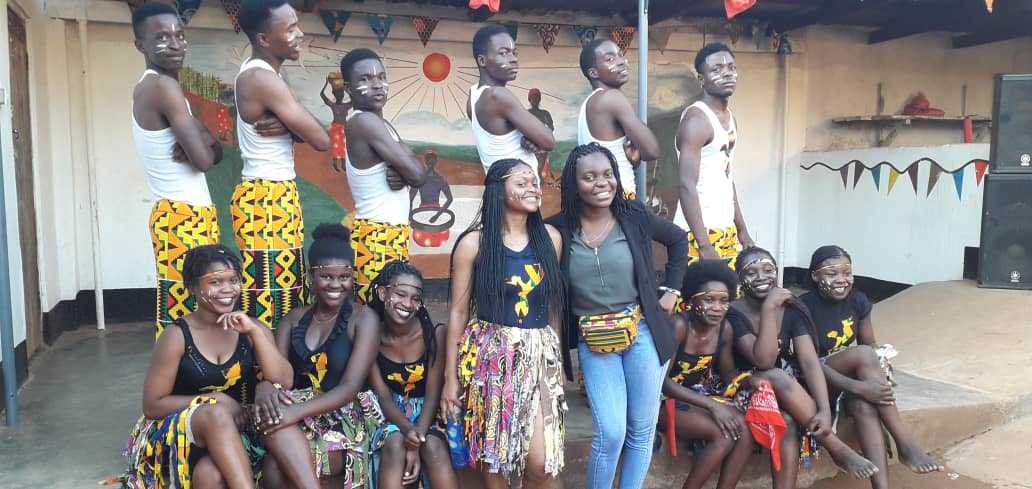
Eulália standing in front of Hear Us Children with fellow Mozambican MOVER; Arneta Langa and Gift Chazima 2nd from right
There are about 15 youngsters from The Hear Us Troupe who fully participated in the dance since the commencement of the journey in November last year.
Gift Chazima is one of the participants, and he showered praise over the Mozambican choreographer. He said: “I would say she was a good teacher. She was patient, humble and eager to teach us how to be the good dancers. We are going to continue dancing Marrabenta as part of remembering Eulália. As for the development of the skills we are going to continuously improve them by downloading new Marrabenta dances.”
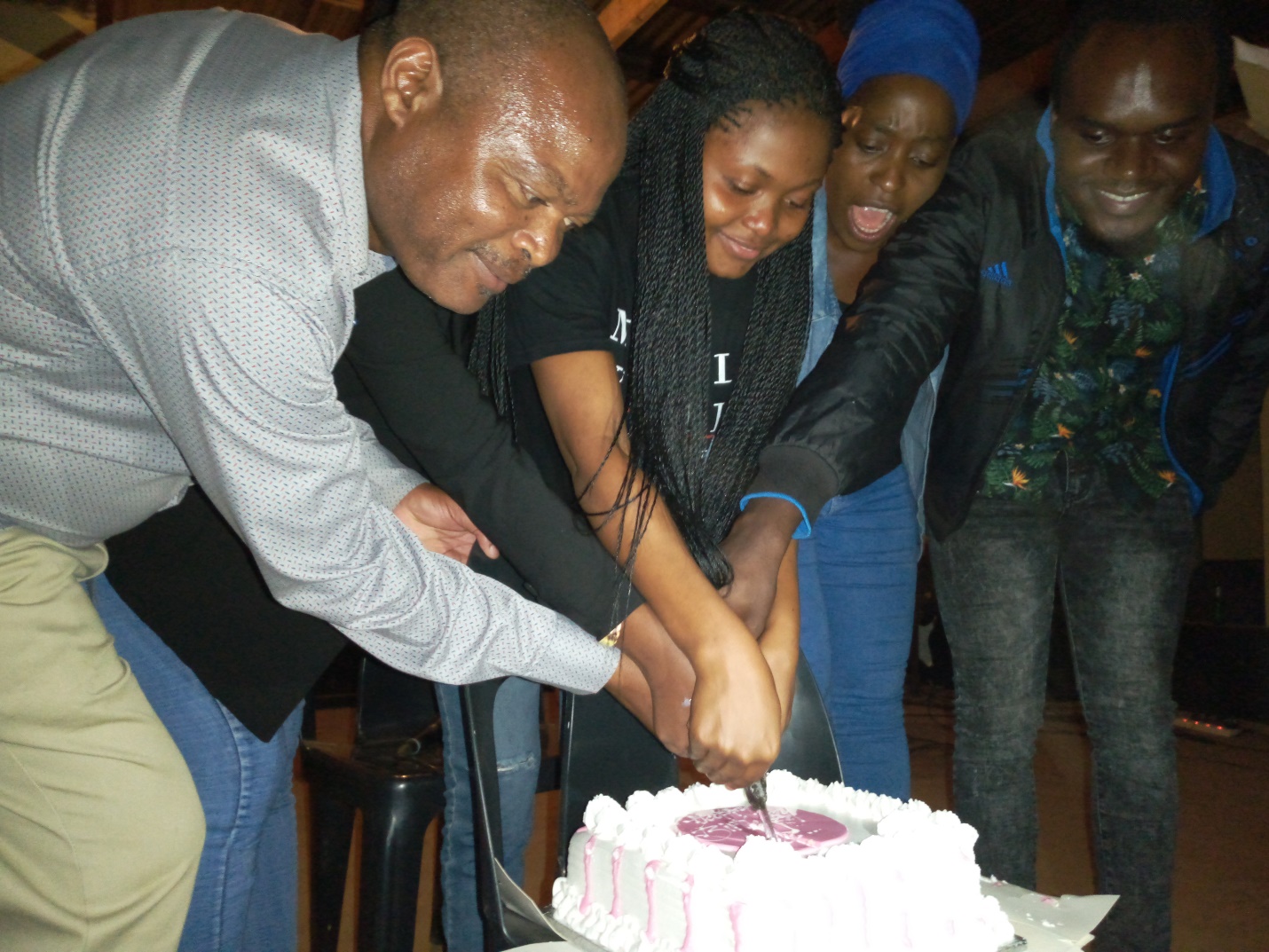
Music Crossroads Director and other staff helping Eulália to cut the cake during birthday party celebrations
The launch day was also Eulália’s 26th birthday and her graduation for successfully finishing her exchange, making it a triple celebration.
Music Crossroads is a programme of Jeunesse Musicales International.
